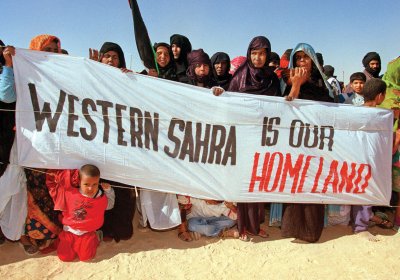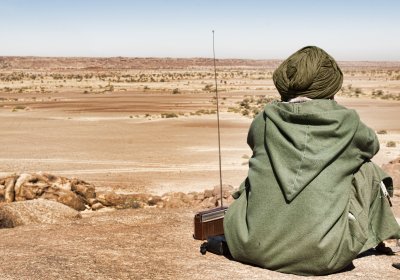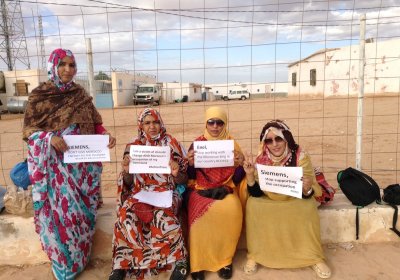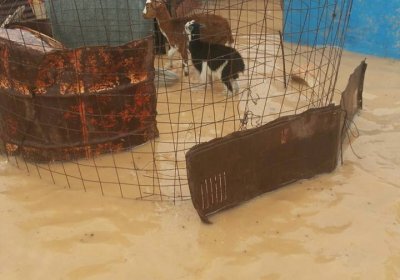Activists are tracking a ship bound for New Zealand containing an unknown quantity of what they allege is stolen Sahrawi phosphate which is illegally mined and exported by Morocco, the occupying power in Western Sahara. Morocco is the largest producer and exporter of phosphates in the world.
Western Sahara
After 43 years of military occupation of Western Sahara, Morocco has failed to legalise its status, and has not convinced the occupied Saharawi people to accept this colonial fait accompli.
In an exclusive broadcast, US-based independent news outlet Democracy Now! broke the media blockade and visited the occupied Western Sahara in the northwest of Africa to document the decades-long Sahrawi struggle for freedom and occupying power Morocco’s violent crackdown.
November 6 marked 43 years of Morocco’s occupation of the Western Sahara, which has forced the Saharawis to continue living in precarious conditions in the desert.
Morocco’s return to the African Union is an affront not only to the people of Western Sahara but to African people
Sidi Ahmed Eddia, secretary-general of the Confederated Union of Saharawi Workers (CSTS) was born in El Aaiun in 1948 and died there on January 3, aged 68.
He was well known for his activism, not only for workers’ rights, but also for many other causes supporting Saharawi rights in general. Western Sahara, a former Spanish colony, has largely been occupied by Morocco since the 1970s, and many Saharawis live in refugee camps in Algeria.
Braodcasting from the November 7-18 United Nations climate talks in Marrakech, Morocco, Democracy Now! reported on an issue that is largely ignored: Morocco’s 41-year occupation of the Western Sahara, considered by many to be Africa’s last colony.
Morocco is eagerly promoting its green credentials in its hosting of the November 7–18 United Nations COP22 climate change conference in Marrakesh. But a new report discloses that the North African country is consolidating its hold on occupied Western Sahara through European-built energy projects.
Surrounded by a barren desert landscape in the far south west of Algeria, about 100,000 people inhabit refugee camps, entirely dependent on aid from the international community. About 100 kilometres away, behind a 2700 km long border fence, is their homeland — Western Sahara.
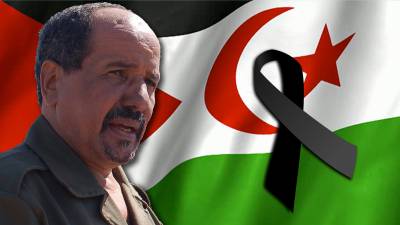 Mohamed Abdelaziz. Photo: An Phoblacht.
Mohamed Abdelaziz, President of the Saharawi Arab Democratic Republic (SADR), died on May 31, following a long illness.
Mohamed Abdelaziz. Photo: An Phoblacht.
Mohamed Abdelaziz, President of the Saharawi Arab Democratic Republic (SADR), died on May 31, following a long illness.
 Vendors salvage goods from ruins of their shops following Saudi airs strike.
Civilians and hospitals are being targeted deliberately in Yemen by the Saudi-led Arab coalition airstrikes against the rebels in the country, officials from the Doctors Without Borders (MSF) medical charity said on July 30.
Vendors salvage goods from ruins of their shops following Saudi airs strike.
Civilians and hospitals are being targeted deliberately in Yemen by the Saudi-led Arab coalition airstrikes against the rebels in the country, officials from the Doctors Without Borders (MSF) medical charity said on July 30.
- Previous page
- Page 2
- Next page


